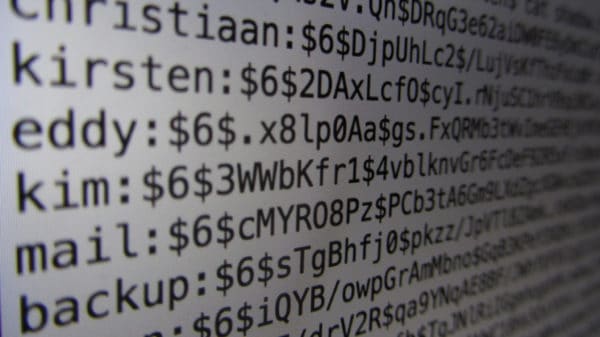Today, many phases of our life depend on the world wide web. We literally cannot function without even checking our email inbox. Our day is incomplete without surfing on social networking websites. Our entertainment source seems amiss if watching movies and listening to songs online is not a part of it. Moreover, different businesses use numerous different softwares and portals to record their data, daily reports, tax records, birth and death records, licensing numbers and e-copy, paychecks, and various hospitals use softwares to store medical records and e-teaching portals use this platform to conduct virtual classrooms, which is quite in trend and preferred by many students in recent times. When a humungous amount of personal and important data is saved on an entity that is used by everyone in the globe, it becomes imperative to be 100% sure of security. Cyber crimes and threats are not a new thing, yet, more and more people are victimised by cyber criminals. How can you ensure that your data is safe on the world wide web? Here’s where cyber security comes in the picture. The following are few things you should know to identify cyber threat:
1. Denial-of-service: This is also called as DoS-attacks. Its intended purpose is to make a service or a website unavailable to its users. This indicates an attack that prevents proper functioning of authorised networks and prevents impairs of systems by exhausting resources. This can impact prevention of access of authorised websites by users, completing a transaction successfully, or even lead to shutdown of a governmentâs website. A critical impact of this is also seen on medical and emergency system communications or even traffic control.
2. Malware, worms, and Trojan horses: These are the most common forms of virus attacks. These spread instantly by malicious websites, spam emails, infected websites and more. If you do not have a good anti virus system installed in your machine. Some websites will automatically download malware without your knowledge. This is known as ‘drive-by-download’. If you have a good anti virus installed, then these websites will be stopped from doing any harm to your machine. And even if any malware or virus gets downloaded, the anti virus will remove it safely.
3. Botnets and zombies: A ‘bot’, short for robot, is a type of software application or script that performs tasks on command like indexing a search engine. The compromised computers are known as zombies. They are good at repeating the tasks. These can spread to newer machines when users have less technical knowledge. Botnets are designed to steal data. Their encryption capabilities have improved and thus it is now getting more and more difficult to detect botnets successfully.
4. Social Network Attacks: Millions of users are constantly accessing social networking sites. Volumes of personal data is stored here and hackers find this an easy target. Many websites have found ways to ensure that a person logging into an account is a human and the account owner. Yet, sometimes hackers find their way out to hack accounts that are not fully secured.
As a user, it becomes important for everyone to be extra aware and careful when storing data on web or while following any new links or websites. On part of website owners, you must ensure utmost security for users and make cyber security as one of the top 5 priorities while creating the website and engaging with the users on your website. Government has also started taking special initiatives to spread awareness about cyber crime. www.cybersecurityu.org is a website where users can read more about government initiatives.
There are many career opportunities in as well, for people who are interested in technology or have much knowledge about it. Helping crack cyber crime cases and its investigation, is a great career path to choose, for people interested in working in the cyber cell. www.cybersecurityu.org also lists all the job roles that this field has for aspirers.
Paul Voley is the founder and editor for CyberSecurityU , a job information site geared towards college graduates who are learning about jobs in the security industry. You can connect with Paul Voley on Google+.

3 Comments
Leave a Reply
Cancel reply
Leave a Reply
This site uses Akismet to reduce spam. Learn how your comment data is processed.
























































































































































































Pingback: Cybersecurity: Identifying Cyber Threats, Virus...
Brittany
January 26, 2014 at 2:44 am
This article surprises me and scares me and informs me all at the same time. Its so scary to think that social networks are so easily hacked. It truly is a scary thing and it makes me wonder why not a lot of people really know this. That is why I think you should use cheap web traffic. It would definitely help you out by bringing in more people to read your article. It is definitely worth reading about.
Brittany
January 26, 2014 at 3:04 am
I just want to say, that cyber hacking is very dangerous and it can get so many people into trouble. That is why I suggest Thai detectives. Detectives can look into the website that hackers are getting into, and try and solve who is hacking it. Doing this will not only keep you safe, but will hopefully end the hacking all together. So that is why I highly suggest.